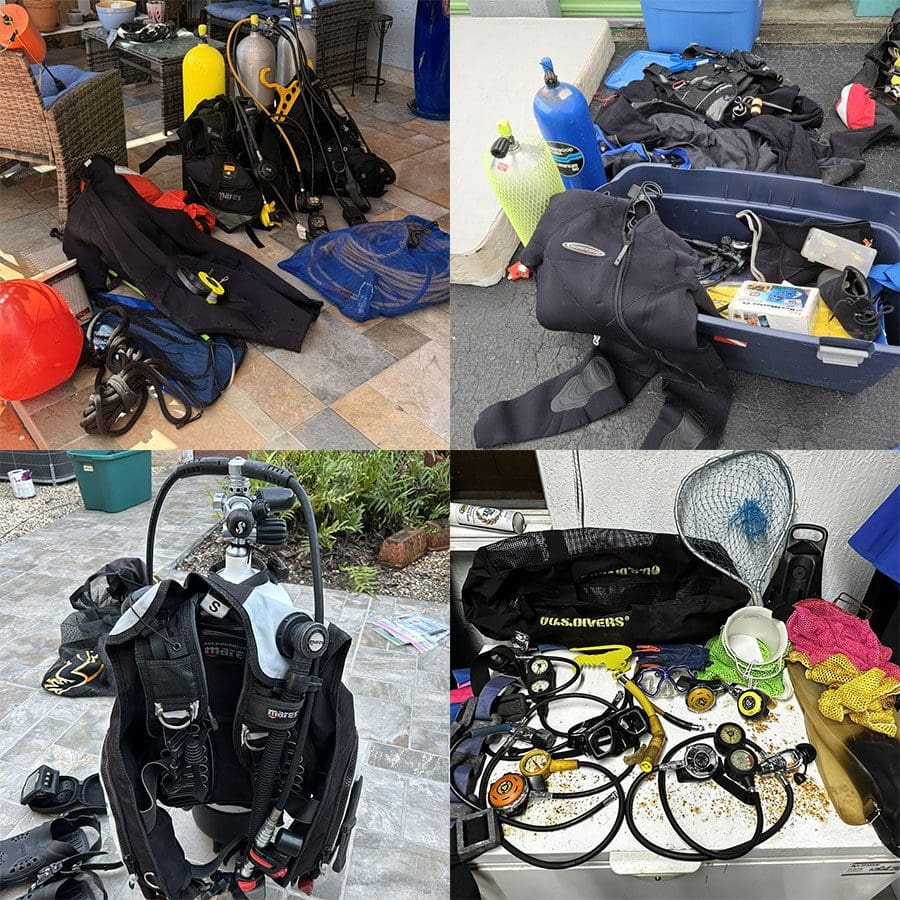This is one of those topics that comes up frequently among scuba divers, and it has a lot of grey areas. Is it safe to buy a used mask online? Probably, but you may lose your money if you don’t try it on before buying it. Is it safe to buy a used regulator online? Maybe, but most people with a lot of dives would tell you they would never consider it. It’s your life on the line; how much are you willing to gamble?
“Caveat emptor” is a Latin phrase that means “let the buyer beware.” In other words, the buyer is 100% responsible to verify the quality, condition, and suitability of a product before making a purchase. You probably won’t have any legal recourse if you discover defects or issues after the transaction is complete, and the results of faulty scuba gear can be tragic.
It’s worth reminding everyone that our local dive shops, Scuba Network, have offered a 15% storewide discount for members that present their membership cards. It’s much better to save a few bucks and get new equipment that is fully warrantied than to try to save a few more and end up with a muck bucket of trouble.
If you are going to buy used gear online, keep these thoughts in mind:
Mask, Fins and Snorkel: Check for wear and tear on all rubber/silicone parts, look for scratches on the mask glass, and make sure the fins fit before you wear them. Use all of the above in a pool before you try them on a dive.
Wetsuit: Check for fit and be certain that all zippers work easily and you can get into and out of the wetsuit without assistance. Just remember that 90% of scuba divers pee in their wetsuit and 10% lie about it.
Tanks: Scuba tanks are becoming very expensive to purchase as the materials they are made from have become scarce. That being said, they are fairly sturdy. Be sure to have a used tank visually inspected (called a VIP) by a reputable third party, and ask them to check the valve and neck as well as the inside of the tank before filling it. Keep in mind, tanks require a 5 year inspection called a hydro in addition to annual VIP inspections.
Regulator: This is arguably the most important piece of scuba gear, and failure can be fatal. If you buy a used regulator, have it rigorously serviced by a third party and then test it in a pool. Don’t cut corners, and don’t accept anything less than perfect condition. When you start using it, be sure your buddy knows and stays close in case you need their alternate air source.
BCD: The BCD (buoyancy control device) is that vest that scuba divers use to control their position in the water and is the central attachment point for a lot of the gear. In addition to checking that it fits you, you should check all belts, connectors, Velcro, weight pockets and deflation cords to be sure they are present and working. Does the hose on your regulator fit the low-pressure inflator? Then have it serviced by a reputable third party who replace the o-rings and check the bladders for inflation and that they maintain inflation.
Dive Computer: The dive computer is, along with the regulator and bcd, among the most important pieces of safety gear that a diver uses. As with the other critical pieces of equipment, you should have it serviced by a reputable third party who will replace the o-rings and battery. You should never dive a new-to-you used computer and depend on it solely. Always carry a backup computer that you can compare the purchased computer to. If your computer is air integrated, be sure you have a separate pressure gauge on your regulator console.
Images were taken from a website specializing in previously-owned items. Out Scuba does not own the rights to the images nor certify their content or worthiness.


